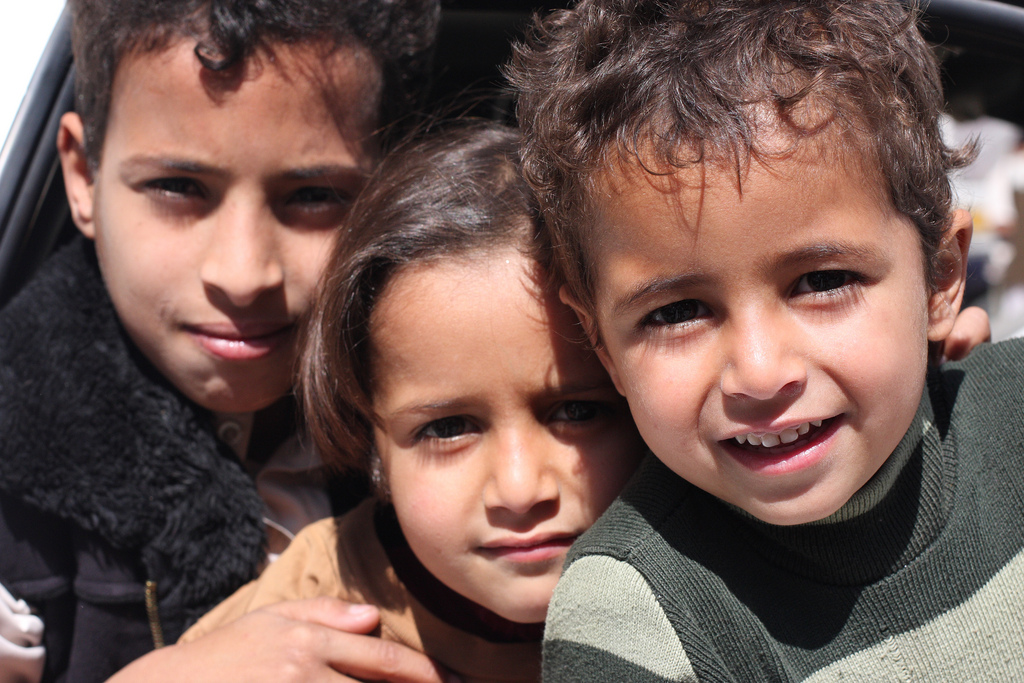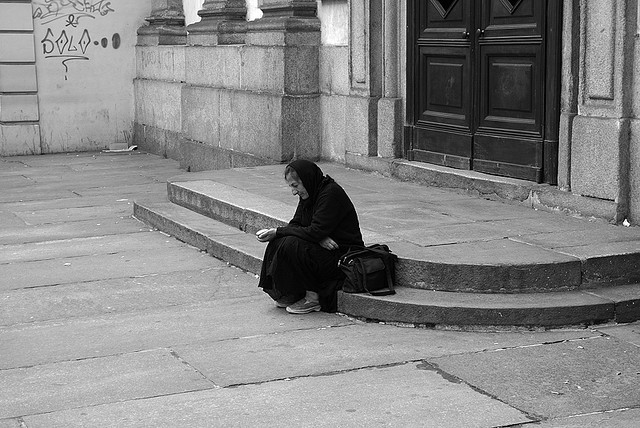
How to respond to a world of seemingly unlimited requests for help
By Shane Bennett
I’ve had an unusual and troubling experience over the last couple of weeks. If you read April’s Practical Mobilization column you may remember me harping on Sicily and the staggering number of migrants landing there lately. I’ve been scheming and dreaming about this situation for several months now and was happily surprised to see the issue foremost in my mind become the issue foremost on global media. I didn’t want more boats to sink just so the issue would gain greater prominence, but I did want to responsibly “strike while the iron was hot.”
Then the Himalayas shook to their roots, thousands perished in minutes, and Nepal pushed my issue right off the front page. I confess, part of my brain though (but only briefly), “Ah, man, there goes the attention I’d hoped to leverage for migrants in Sicily. There go the funds I was hoping to raise.” I’m not too proud of that response!
It’s indicative, though, isn’t it? We live in a world of incalculable need. Global connectivity brings needs to our attention and the curious can now even watch HD drone footage of latest devastation. You probably get more requests for prayer, funds, and involvement than you can possibly respond to. You love Jesus, but you can’t do it all.
About a month ago, I fell in love with a relatively new movie called The Good Lie. Rent it and watch it this weekend. It’s a story about refugees coming to America. It’s a Hollywood film, with a predictably happy Hollywood ending. Except for the gut-wrenching reality that this reasonably good outcome occurs in the context of tens of millions of unhappy ones. It’s almost too much to deal with.
How does a heart of compassion respond?
My friend David recently expressed his feeling of being, “bombarded with many requests even from my own community as we launch another season of short-term mission trips.”
What do you when a dozen bright, young, college students send you letters asking for prayer and funds? Even when you consider that your paltry paycheck is many times greater than that of most people in the world? What does God expect of us when each crisis seems more devastating than the one before?
These questions call for book-length answers and long conversations over coffee or something stronger. At the risk of being trite, let me float out some thoughts. Please bless the rest of us by commenting and letting us know how you deal with these common issues.
1. Keep God at the center.
I’m sorry if this goes without saying, but as we consider the need of the world and the various requests to respond that we encounter, we’ve got to remember God, who he is, and what he is doing. He knows the number of hairs on every head. He knows every tummy ache, every loss, every relentless search, every sleepless night of despair, and every thought of suicide. He is near to the brokenhearted. He is not unaware of the pain. He has calculated the need.
If I didn’t believe that, I’m not sure what I would do.
But I do believe it. And that is the first layer of response for me: God is more concerned than I am and it’s his responsibility more than mine. I (we) have the actually quite stunning privilege to partner with God in his response to the world’s need. Is that not remarkable?
2. Don’t shut down.
One response option is to decide to simply not respond. It may be the extreme version of “bloom where you’re planted,” e.g., “I’m planted on my couch and I will bloom here while I binge watch Gilmore Girls on Netflix.”
I remember wresting with this during a long-ago sojourn in Mumbai. My team leader and I were in a cab driving through a part of town where people gathered to beg. When one guy wheeled up to my team leader’s rolled-down window and asked for something, my TL stared straight ahead. The beggar glanced at me and said, “Uncle is a bad man. He will not even look.” Before he could ask me for something, we rolled away.
I could understand where my team leader was coming from. On the one hand, the need was too great for us to fix it. We knew enough to sense how very little we knew about the situation, the real situation, of most of these people. So a clear option, which we both went with from time to time, was to shut down and simply not connect.
Please don’t do that, not every time. Please don’t kill that part of you that cares.
3. Choose where to give.
I want to be more generous than I am. Paul’s words in 2 Corinthians 9:10-11 challenge me: “Now he who supplies seed to the sower and bread for food will also supply and increase your store of seed and will enlarge the harvest of your righteousness. You will be enriched in every way so that you can be generous on every occasion, and through us your generosity will result in thanksgiving to God.” And Jesus teaches us, “Freely you have received; freely give” (Matthew 10:8).
Assuming that you can’t give to everything, how do you decide?
It seems too trite to say, “Just ask God and do what he says.” At the same time, I know I need to cultivate a greater sensitivity to God. Two weeks ago I was driving away from lunch with a young man who was working with me for the day. He said, “Hang on a second,” and then proceeded to pull a couple of dollars out of his pocket for an aging man begging on the corner. I was challenged by this guy, who though younger, poorer, and, as far as I know, less Christian than me, looked a lot more like Jesus than I did. I’d noticed the man begging the day before but did nothing. I need to learn to listen better.
I also think we’d be wise to invest more in fewer things. If you regularly get fifteen summer mission support letters, perhaps you could decide to give significantly to two of them, trusting God to provide in other ways for the rest. (In fact, though it’s beyond my authority, I give you permission to do that!) Or ask God if he would give you a burden for a particular kind of work, maybe in a particular place. Then dive into that and live free from guilt over what you’re not doing.
4. Learn to say no.
Briefly, you’re free to toss unsolicited direct mail. You’re free to not “like” causes that make it to your Facebook news feed because someone invited their whole friend list to “like” it. Revel in this freedom.
But if a friend writes, calls, or texts you, please respond. Speaking as someone who raises funds to feed my kids, a “no” is better than no response. I know you’re busy and things get lost. Heavens, I’ve ignored more than my share of personal requests as well. Maybe we can band together and decide that we will respond, even if that means we need to say no.
5. Choose how to give.
Maybe your best gift to someone who’s asking for prayer and funds is to really give them some prayer! Actually do it! Write out your prayer and send it to them. If you’re prone to forget, carry a small token, a marble or something, with your keys for a couple weeks, and pray each time you bump into it.
Maybe your best gift is advice. I think we should assume the best and be quite cautious about judging what someone feels that God is asking them to do. But if you have grave concerns beyond just looking for a reason not to give (or is that just me?), please share them. You may save someone a busload of grief.
This side of the fullness of God’s kingdom we will have pain and great need. May God overwhelm us with grace to respond as he desires. May he free us from guilt over what we can’t or don’t do. May he multiply our gifts and service to his great glory.
» How do you choose what needs to respond to? Comment on this article on our website or Facebook page and please forward or share it freely.
Image source: Angelinux (Flikr/Creative Commons)






